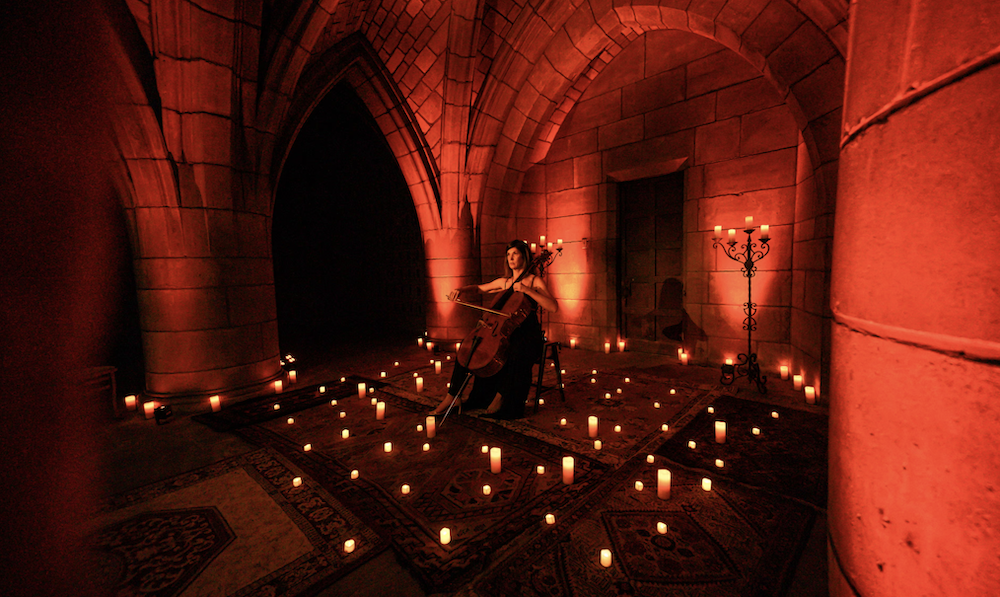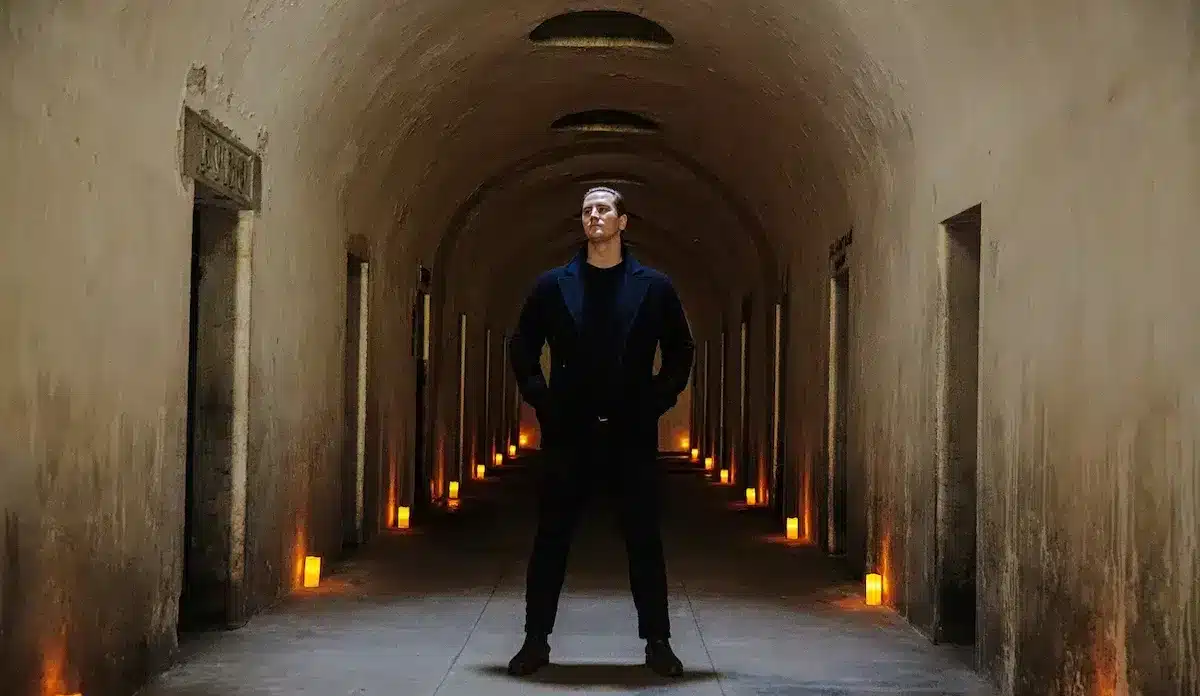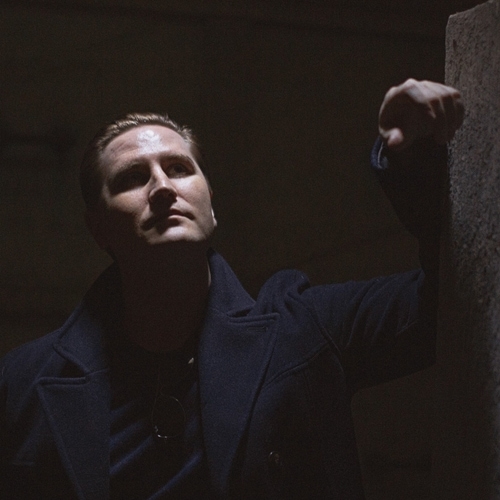From Crypts To Catacombs: This Entrepreneur Is Giving Classical Music A Radical Makeover
Forbes spoke to Andrew about his vision for classical music, and his Crypt and Catacomb concerts.
From Crypts To Catacombs: This Entrepreneur Is Giving Classical Music A Radical Makeover

On a chilly evening in November, 49 people had made their way into the Gothic crypt underneath the Church of the Intercession in New York’s Washington Heights neighborhood where they were surrounded by the ashes of those who had been cremated and interred there since 1915.
Only this time, they hadn’t come to visit the dead—they were there to listen to the transcendental melodies of Beethoven, Liszt and Schumann played by Israeli pianist Matan Porat, in the year’s penultimate performance of Andrew Ousley’s Death of Classical concert series. Ousley has hosted classical music concerts in the crypt as well as in the catacombs of Green-Wood Cemetery in Brooklyn since 2017.
The name of the series is an ode to the unconventional spaces in which the concerts are held, but also alludes to the purpose of the series: to make sure that classical music doesn’t become just a memory of an antiquated past.
In the last few decades, interest in the art form has dwindled. Concert subscription sales have fallen, classical music is not prioritized in public school curricula and employment is expected to fall in orchestras and opera companies because of limited funding. The trend has been reported for years, with the New York Times’ former music critic Allan Kozinn noting in 2006, “Moaning about the state of classical music has itself become an industry.”
Ousley, a music lover and the son of an opera singer, recognized early in his life that classical music was important to him, but also that it was seriously misunderstood. “Classical music has taken itself as a discipline far too seriously,” he says, adding that it can be “either incredibly pretentious or incredibly boring.” Looking for a way to offset that, Death of Classical was born.
The concert series originally began as a side project while Ousley was spending most of his days representing classical musicians and performance artists at Unison Media, the public relations and marketing firm he started in 2015. Ousley thought he could jumpstart classical music, bringing new audiences and reinvigorating interest, by holding concerts in unusual venues, such as crypts or catacombs. Most of his concerts also offer a cocktail hour beforehand, and the concert time is usually limited to an hour or so. “To me, it’s enough time to provide a truly meaningful musical experience,” says Ousley. “But it’s not so long that it wears out its welcome.”
Tickets to Ousley’s concerts almost always sell out—they’ve caught on and are popular, but also because the venues are small. At the Church of the Intercession, audience members sit on plastic chairs and snack on Costco cheese before descending into the crypt. At historic and atmospheric Green-Wood Cemetery, where concerts are held in the warmer months, performances are preceded by a whiskey tasting and then a moonlit walk through the cemetery to the catacombs.
Both the church’s crypt and the cemetery’s catacombs provide intimate environments for the music, with candlelight and an air of mystery. At the crypt, arches and candelabras frame the artists, and past performances have included violinist Lara St. John, cellist Joshua Roman and opera countertenor John Holiday.
Ousley has a gift for attracting sponsors and works to keep costs rock-bottom: Yamaha provides the pianos the musicians use, food and alcohol is either donated by partners such as Blackened American Whiskey and Virgil Kaine Lowcountry Whiskey Co. or purchased in bulk, and the musicians receive little compensation. But he still loses money. His hope is to turn the series into a nonprofit organization. He currently relies on a band of volunteers, but he’d like to one day have a real production staff. One thought is to create a membership model, which would offer members first dibs on tickets and other benefits—and permit more shows to be presented.
Ousley thinks the interest is out there. “We’ve had a lot of people come and say, ‘I’d like to support this,’” he explains. But for now, “I’m literally moving chairs on the afternoon of the performance,” he says.
Ousley hopes to continue his radical reinvention of the way classical music is presented, and hopes to expand to even more unusual venues. He says he has his eye on the cave beneath St. George’s Church in New York City. But whatever he does in the future, he says, “it will be similarly unexpected, transformative and macabre.”




